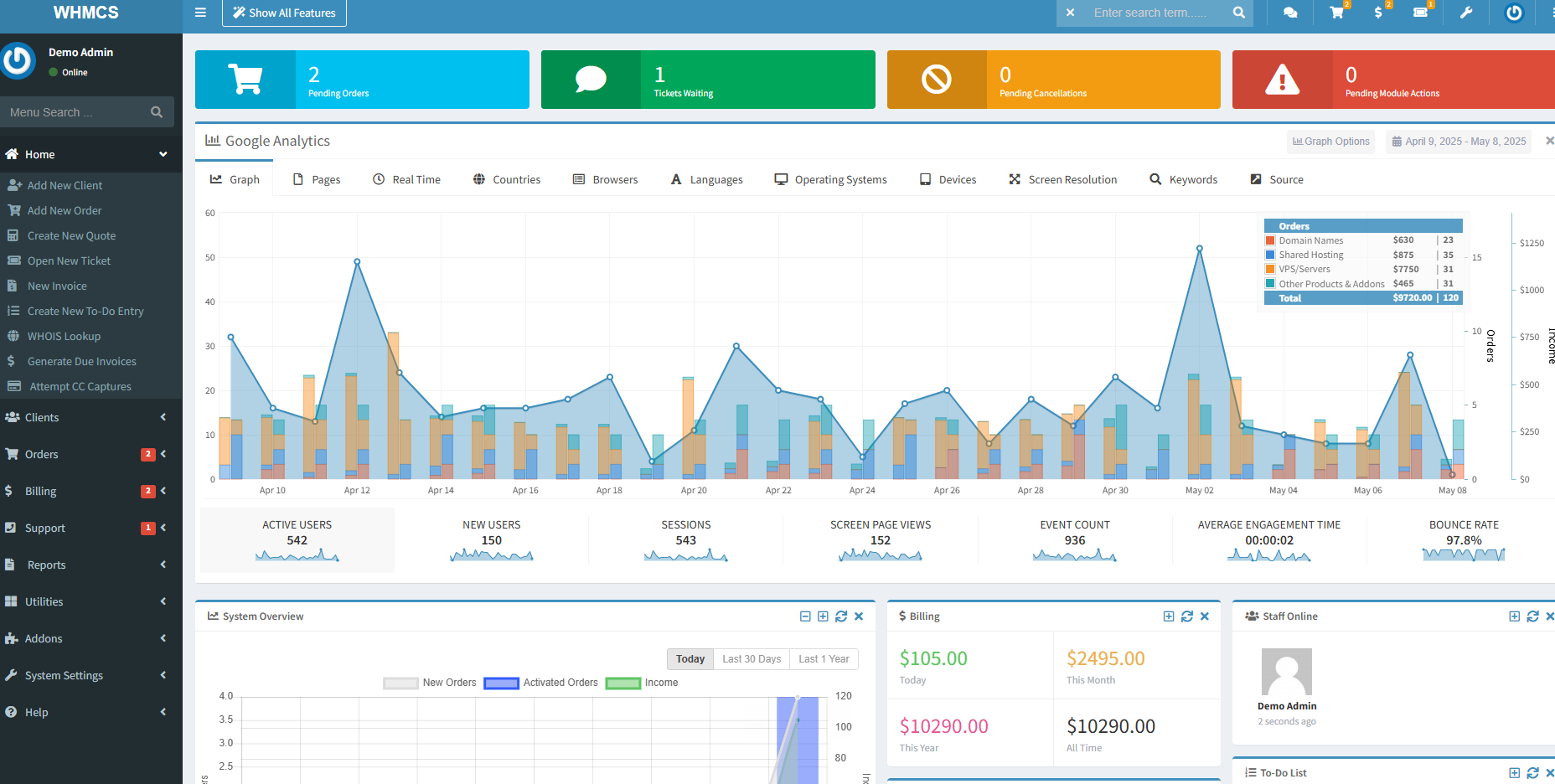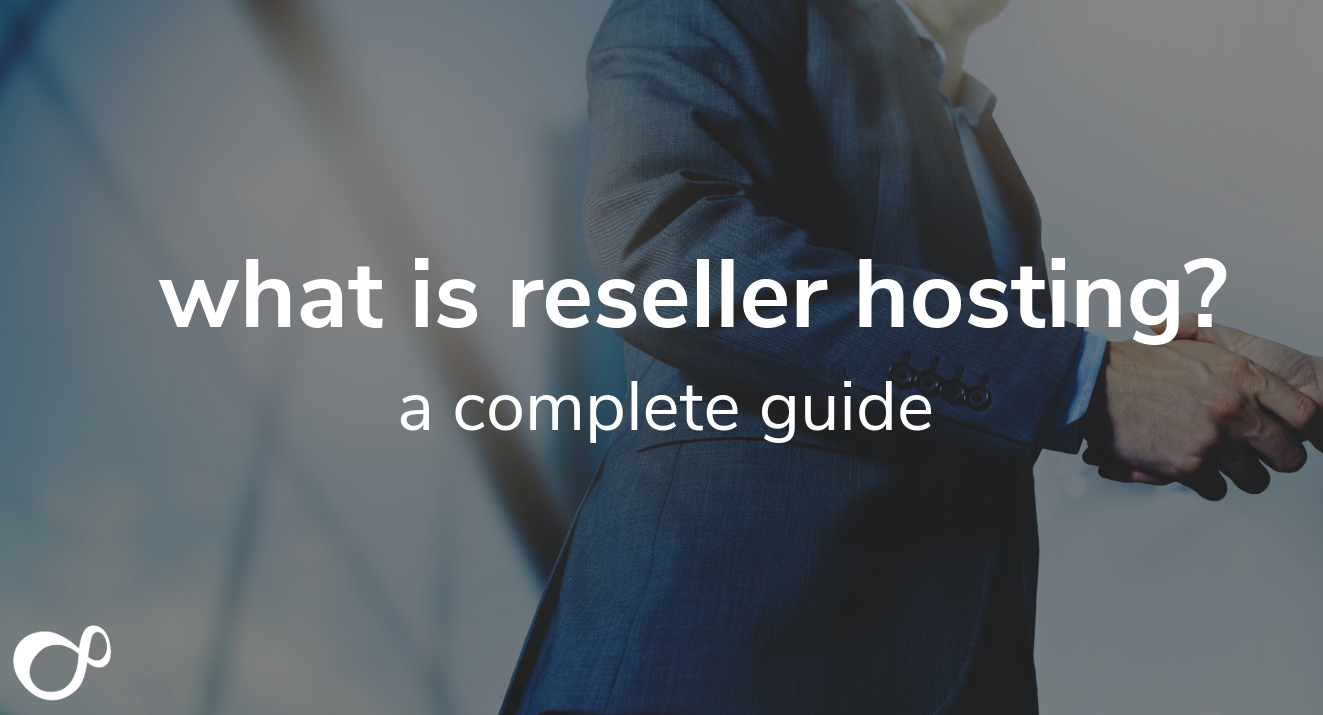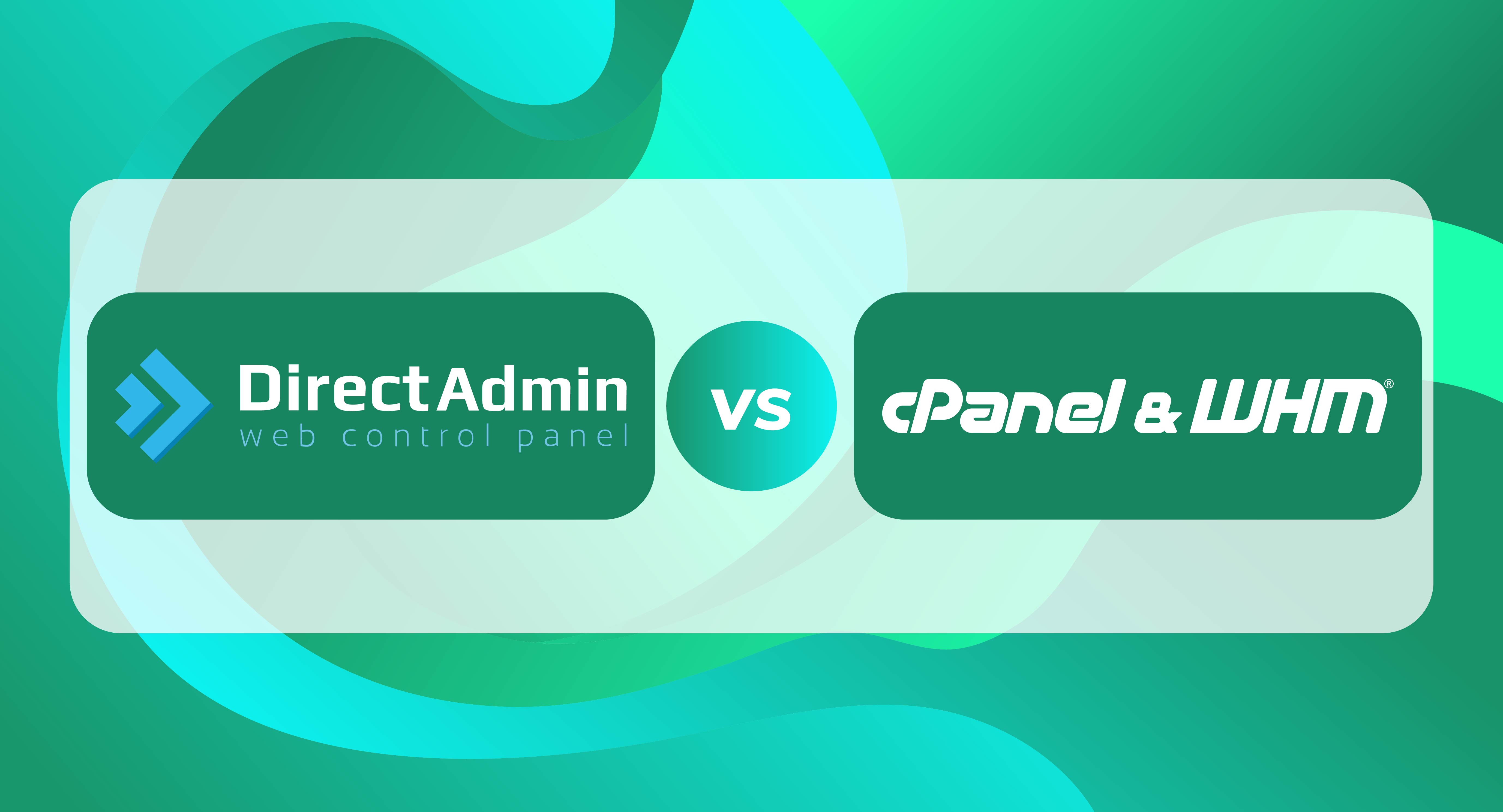
How To Start a Web Hosting Company in 2025
Posted April 5, 2025 by Angus
Starting a new business in 2025 can be hard, getting customers through the door is already difficult, so imagine having to set up and manage your own cloud infrastructure as well. Without significant upfront investment and decades of technical expertise it’s likely your web hosting company wouldn’t get off the ground, this is where Reselling & Reseller Hosting comes in.
What is Reselling?
Reselling is a well-known, successful business model that involves purchasing physical products directly from manufacturers, wholesalers, liquidators or even second-hand retailers. This allows the reseller (you) to take advantage of an established product that already sells.
Now you might be thinking, What is Reseller Hosting? A reseller hosting service enables you to sell white-label hosting services without needing to manage actual servers. Dropping the upfront cost significantly and removing the technical barrier to entry. With your web hosting provider maintaining both physical and virtual servers for you.
With more businesses looking to establish their online presence in 2025 you have a great opportunity to get started.
Research & Planning
Before starting any business venture first consider the overall business environment including: the competition, costs involved, legislation and much more. This stage should form the foundation of your business and ensures long-term success.
Identify your niche & USP.
Much like life; in business its hard to please everyone, this is especially true when starting out. If you target too broad your customers needs can become unmanageable. At this stage think about targeting a specific niche where you can develop expertise and build relationships.
- Local Small Business – Electricians, roofers, plumbers and other service based businesses all require simple but professional websites. It’s possible they will want a fully managed service and might require a more active approach from yourself. Including editing pages, adding imagery and updating the site as required.
- Professional Services – Accountants, Lawyers and other professional services need websites and email to showcase services and communicate with clients. Catering to this audience adds a level of complexity as they would usually require increased compliance and data redundancy.
- Creative Businesses – Designers, photographers and artists often require portfolio style sites containing many images. Catering to this audience could mean that you offer higher storage limits and image optimisation.
Defining Your USP
A USP should address specific problems associated with your chosen niche. This isn’t just your feature-set, it’s the what problem do I (as their web host) solve for them.
For a local small business (roofing contractor), your focus should be on taking all of the pressure off of them. Although bordering on the work of an agency rather than a fully fledged web host – This could include offering to build the initial site and provide regular maintenance and updates.
For many creatives, especially those competent at design, you can benefit from a more hands-off approach at a reduced cost, emphasising how your product can deliver the same for less.
Whatever you choose for your USP, it’s important that your entire site and copy clearly demonstrate why you are the right choice. If you can’t demonstrate your differences between the competition within a line or two you will need to think on further about why they should choose you.
Look at your competitors
It’s well known that the web hosting industry is highly competitive. However, this is not something which should dissuade you from starting your new venture. Existing competitors at all levels provide great insights into how to differentiate your services and stand out from the crowd. Think about everything we’ve discussed here, your niche and then how competitors apply those techniques.
The insight you gain here can help you develop pricing, features and even marketing efforts.
Risks & Contingency Planning
All businesses face challenges, it’s important that you identify those from the outset and develop appropriate strategies in response.
Technical risks – This is in part handled by our reseller hosting service. If at anytime your overall service is having difficulties engage our customer support team and ensure you have a communication plan in place for your clients. It’s important to consider that issues relating to the resold accounts and sites themselves are issues that you as a reseller have to solve.
Putting all your eggs in one basket – Heavily depending on one large customer can cripple your business. It’s important that you try and diversify your overall client base to prevent a single cancellation putting you at risk of closing down.
Competition – Larger companies might already exist or enter your niche at any point, it’s important that you provide value and build relationships with your customers early. Focusing on retaining gained customers is just as important as acquiring them.
Having plans in place for these key scenarios can help you respond and manage situations both quickly and professionally instilling confidence in your customer base.
Understanding start up costs
Starting a reseller hosting business requires relatively low upfront investment. With proper budgeting, you can ensure that you maximise profits. Every operation is different but the following are some standard expenses you will face:
Essential expenses – Currently our cheapest cPanel reseller hosting is priced at £8.33 per month on an annual basis. By paying for your plan annually you reduce your costs by up to 16.66% keeping your costs down. Domain registration starts from £7.19 but this is dependant the TLD and it’s specific domain pricing. Website development is something you can DIY to save cost, a professional website can range from anywhere between £200-£2000 depending on complexity. If you opt for WHMCS, factor in licensing costs which start from £6.99.
How much can you earn from reselling?
Learn how much revenue you can generate with our affordable reseller hosting plans.
Marketing budget – Allocate funds for initial marketing efforts, whether that’s paid advertising, content creation tools, or networking event attendance. A realistic starting budget might range from £300-1000 for the first quarter.
Professional services: Consider costs for logo design, legal advice for terms of service, and potentially an accountant for business setup. These can range from £200-800 depending on your requirements.
What is cPanel reseller hosting?
Reseller Hosting with cPanel is the tried and tested solution for easily reselling web hosting plans. Providing an easy to use GUI and comes bundled with features that can enable everything from DNS zone management to email account creation. . In recent times cPanel’s per using pricing structure has put this to the test, with some users looking at more cost effective solutions.
Some of the main benefits include:
- Set up on managed infrastructure – You don’t need to manage physical or even virtual servers, licenses, software and backups.
- Fully white-label service – You can create your own cPanel sub-accounts with custom packages that have resource limits you set. On a platform that you can put your own branding on, completely separate from us.
Configuring WHM for your business
We’ve touched on the benefits of using a managed platform for your web hosting company, now it’s time to start thinking about applying some of those benefits to your new reseller hosting account some of the most important to start off with are:
- Effective custom branding. This plays a critical role in building up the initial trust and recognition of your brand within the hosting space. This can start at custom WHM branding which lets you change the default look of the cPanel interface. Introducing your own logos, favicon and you can use a dedicated login URL. This helps you create a seamless, professional experience for your customers by blending in small touches that help establish you as a credible provider.
- Carefully structured hosting packages. Having your own unique hosting packages enables you to cater to the needs of your clients (not ours). Your USP (we’ll touch on that later) should cater to a specific niche. You’ll want to design hosting plans that to that niche and the needs of your clients. Whether you are targeting personal sites or small business owners. Setting up your own packages will help provide a clear value proposition through clearly defined tiers. At this stage you should conduct market research for your niche thinking specifically about what limits they set so that you do not overly restrict your customers or let them run wild.
- Custom DNS management. This is another area that will contribute to your overall business image. helping to convey a more technical and professional look. Using custom nameservers that incorporate your brand has the added benefit of increasing your reach. This is through people seeing your brand more often. The nature of our reseller hosting means that email enabling records (SPF, DMARC and DKIM) come pre configured further aiding email deliverability.
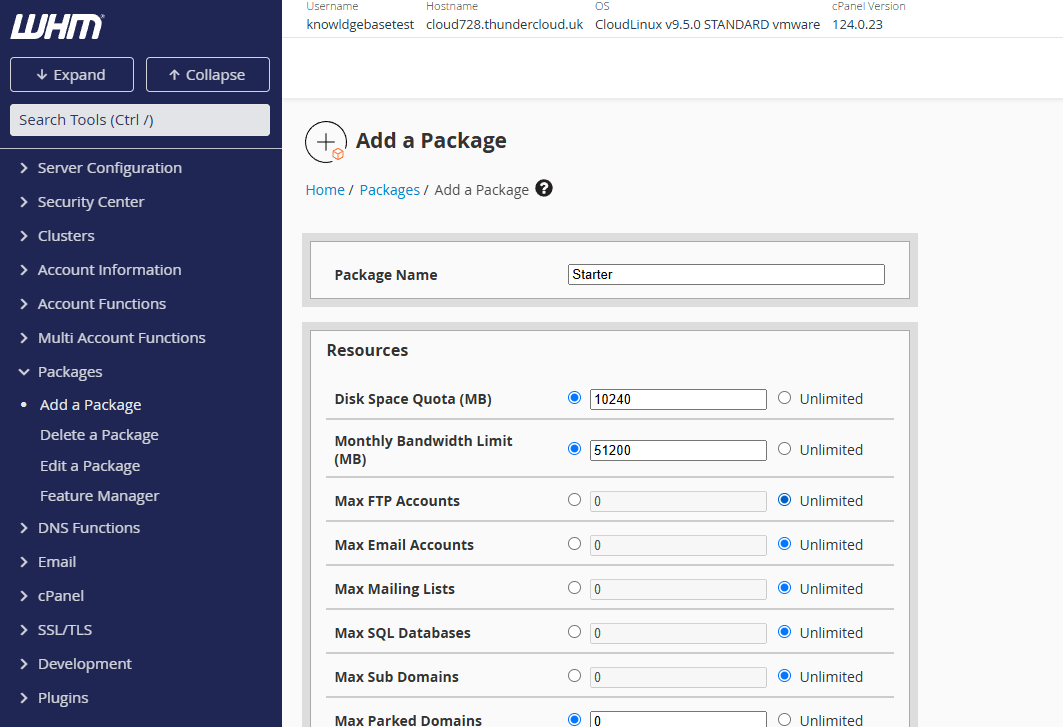
Marketing your new web hosting company.
Getting your marketing right is a life or death matter (for your company anyway). Without a good marketing strategy you’ll struggle to get clients through the door and your new business is as good as dead before it even gets a customer. When it comes to marketing or even direct sales as a web hosting company you’d be best served by starting with the essential – a Website.
Building your business website
Creating a website can be a challenge but it’s usually necessary as a web hosting company – without a website why would others trust you with theirs? If you’re not particularly technically minded and want a WYSIWYG style editor you are likely best served by using WordPress for your website.
When thinking about website design you’ll likely want to start off by emulating other sites or using a template, this is the easiest way to take advantage of their experience and apply it for your benefit (without copying them completely). This might look something like this:
- Install WordPress on your custom domain.
- Choose a theme that is suited to your needs or design your own.
- Construct different pages detailing your features, plans, USP, etc.
- Include client reviews and different trust factors for your brand.
As a note, WordPress is a solid choice but it can be difficult to scale well, so make sure you apply our tips on caching for WordPress.
Integrating WHMCS (Optional)
WHMCs is the leading client billing solution across the web hosting industry, it comes stocked with lots of features that enable client management, billing and support. We have left this as an optional step as WHMCS is more suited to a B2C style company and might not be needed by a fledgling digital agency. With that said, the benefits that a WHMCS license can provide make managing your company a lot easier:
- Client management – creation, deletion, login, etc.
- Automated billing – support for multiple payment methods.
- Platform integration – can bolt-in directly with WHM / cPanel.
- Domain management – can bolt in with domain registrars allowing registration, transfer and automated renewal.
- Support system – A built-in ticketing system with support for building out a knowledgebase.
Search Engine Optimisation (SEO)
SEO refers to optimisations that can be made to your site which help improve how it is viewed across search engines, the better a site performs the higher its overall visibility and usually traffic.
More visibility = More organic traffic to the site = More sales
Getting SEO right can be difficult, especially in a developed space (the Web Hosting industry) where many competitors will have teams of people dedicated to creating content and performing outreach. So it’s best to just start with the basics, get those right and play by the rules and watch as your business gains traction organically. Some ideas to get your started:
Research well performing pages and terms for competitors in your niche, find out what works and what doesn’t. You can use the free version of tools like Ahrefs.com or SEMRush.com.
- Create blog posts that are relevant to your business, for example you run a design agency focused around the construction industry – focus on topics that are relevant to them this could be a new product or business (as a rough idea).
- Create guides through your knowledgebase, these could show how to use your service and might pick up traffic that otherwise ended up at your competition.
- Optimise your site content for relevant search terms without overstuffing.
Want to boost SEO further?
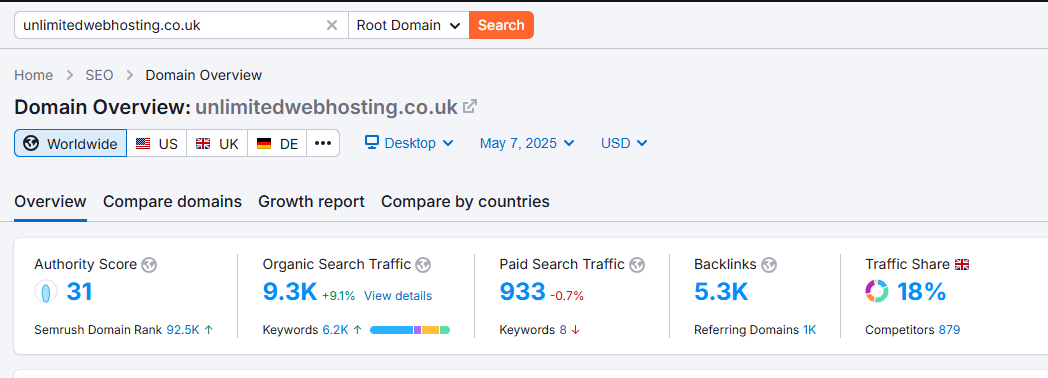
Pay-Per-Click (PPC) Advertising
For most new businesses, this is something that might not be suitable. PPC advertising if used correctly can elevate your business quickly. However, this will come at a cost to you and if you’re inexperienced it’s probably best to start out with a small budget and see what works and what doesn’t. Some of the main examples of a PPC campaign would be setup in either GoogleAds or Meta Ads.
Social Media Marketing
Marketing via social media is similar to SEO (content marketing) in the way that if done right it can make your business very successful. And, for normal posts you don’t have to pay but to get to that level you need to commit a lot of your time and effort into providing content that engages people in your niche. Without adding my own bias for a small business Social media marketing is a no-brainer, you can acquire and engage with potential clients at no cost whilst increasing your overall brand visibility.
You’ll want to consider which platform is best suited to your niche before committing though. Reddit, LinkedIn, X, Facebook, Instagram to name a few are all safe bets when starting out.
Referrals, Networking and Direct Sales
Referrals, networking, and direct sales are the backbone of sustainable business growth. This is especially true for a web hosting company, these approaches involve establishing genuine professional relationships. And often prove more effective than traditional advertising, rapport builds trust; a major barrier in business-critical services.
Building Your Network
You might find initial success by attending industry-specific events, partnering with established web designers, or approaching businesses with outdated websites. Whilst this direct approach can feel daunting, these relationships typically last longer and generate more loyal customers than via other marketing channels.
Maximising Referral Programmes
Your existing client base provides a solid foundation, but you can optimise it further. Introducing referral programmes can accelerate your growth by incentivising satisfied customers to recommend your services. The structure of your referral scheme is entirely up to you, this could involve discounts, commission, or tiered rewards scaling with successful referrals.
For example, you might offer a 5% discount on the next bill for each successful referral, or create a tiered system where one referral earns £50 credit, whilst three referrals unlock a years free hosting.
Nothing speaks more powerfully to a potential customers than a trusted colleague in their field. Rather than constantly promoting yourself, those satisfied customers handle the promotional work, lending you credibility that money can’t buy.
The key is making the referral process simple whilst ensuring the rewards feel worthwhile for all parties involved.
Strong customer support
The success of any business is built upon strong customer support. For successful reseller hosting, the same applies. As an experienced web designer or web developer, you are more knowledgeable about the intricacies of hosting, so you must make sure to provide exceptional customer support for your clients.
If they encounter a problem, you are the one they will contact to solve it. As you are not the only reseller hosting business around, your customer service must go above and beyond others. Not only will this make you stand out in the industry and therefore draw more clients to you, but it will also give your clients faith and trust in your service.
This means you must keep up with any queries and questions from your clients, no matter how large or small they are. Keeping up with every question that comes your way can be difficult if you are working alone, though, and there’s a significant chance that you will receive many queries at once. You will need to consider how you can fix these problems quickly but correctly so that you do not lose any business or frustrate your clients.
Despite this, some of the best reseller hosting plans will come with support included. This can take some of the pressure off you while still delivering fantastic support for your customers. While customers may still come to you before anything else, you can at least direct them to the appropriate channels that can hopefully help them solve any problems. If you want to take this a step further, consider sending a follow-up email after their problems have been resolved so you can get an idea of how simple the process was, and if there is anything you should look out for next time.
You shouldn’t always rely on the third-party support for customer queries, though. Your clients will often want to work with you directly, rather than being passed onto someone else. In this case, you should endeavour to tackle as much troubleshooting tasks as you can. This will help to create a rapport between you and your client and will increase customer satisfaction.
It may also be worth setting up social media channels for clients to direct any queries, while an email management tool could also be beneficial. This ensures you never miss a query and do not leave your clients waiting around for an answer.
Categories: Reseller Hosting
About The Author
Angus is the Website and Content Developer at Unlimited Web Hosting UK where he crafts clear, engaging content optimised for humans.

